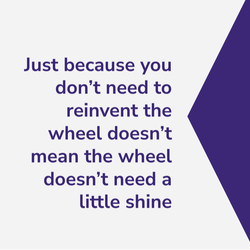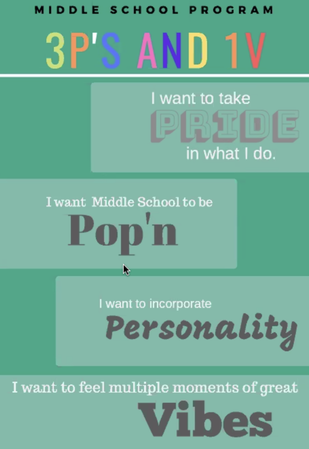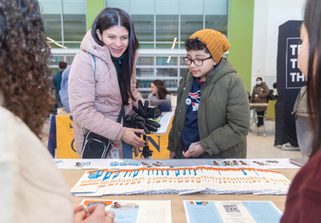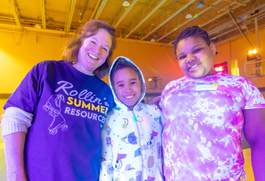 Our network meeting in March 2024, focused on our middle schoolers (6th-8th graders) - particularly the older rising 7th and 8th graders that are often hardest to recruit and maintain in summer programs, yet are also critically important to have in programming. Our big question for the meeting was: What does it take to engage middle schoolers in the summer? Because only so much can be covered in any 90 minute meeting, we focused on two elements: what trends we are seeing among the 6-8th grade post-COVID (in schools and programs), and what we are naming “the culture challenge”: how do you create a pathway so that 5th graders want to stay enrolled and eventually become the 8th graders in your program? Check out the slide deck from the meeting here: What Does It Take to Engage Middle Schoolers in Summer? We did a number of ‘chat waterfalls’ during this meeting, where we asked the 30+ participants a question, had them type their answer in the chat but not press send until everyone did it together - thus creating a ‘waterfall’ of responses all at the same time. It was a great way to see all the input and perspectives and expertise from across the network. The first of those was just about what trends we are seeing in middle schoolers: What are we seeing? (Chat waterfall responses)
Then, we asked folks to share their own questions about the situation: What questions do we have about what is going on? (Chat waterfall responses)
These responses set the table for a really rich discussion about what we’d like to see in middle school programming. We heard from Melinda Rosado, who has deep history with the Middle School Network and our schools - she was a former youth worker and program director at Gately Youth Center, worked in student support at Putnam Ave Upper School and is currently working across all four Upper Schools as a Safety Specialist for the Safety Dept of Cambridge Public Schools. As someone who spends time in each of the school buildings, and someone who knows both the OST and the school perspective well, she had a lot to say on this topic (which is why we brought her here - her expertise and advice about young people has always been spot on). Some of Melinda’s insights on middle schoolers right now:
 Melinda’s 3Ps and a V from Gately Middle School Programming when she was a program director Melinda’s 3Ps and a V from Gately Middle School Programming when she was a program director We spent the rest of the meeting talking about where we would like to be with our middle school programs - thinking and sharing “what it looks like when it works” - and we got some great examples from folks in the meeting. Some highlights: What does it look like when it works?:
As always, here were the community announcements:
Emily Meyer (CPL): The Cambridge Public Library has a few fun and exciting events coming up! On March 14th, there is a Nintendo Switch program for ages 7-9. On March 28th, there will be a shadow puppet story telling event. For the April 8th solar eclipse, the library is giving away free glasses to watch the eclipse and is hosting eclipse-related activities. To view a list of upcoming events and programs, click here. Emily Shield (Women’s Commission): Hosting Consent Camp this summer! During this summer program campers will learn about consent education and activism. Campers will be mentored by high school peer leaders. By the end of camp, they will receive a certificate in Peer Education. To register, 7th-9th graders: click here, 4th-6th graders: click here.
0 Comments
 More than 650 Cambridge parents and caregivers attended the third Annual Rollin’ & Summer Resources event, where they learned about how to sign up their children for summer programs. The event took place on Saturday, March 2, 2024, at the Cambridge Street Upper School/King Open Community Complex. More than 50 summer camp and other service providers attended. Families enjoyed plenty of pizza, samosas, wraps, snacks, drinks, popcorn and snow-cones! Children roller skated, made art projects, tried parkour, played life-sized board games, built basketball skills, and more. Families throughout the city accessed school bus transportation to and from the event. They received support to explore program options from: Summer program staff, members of the Cambridge Public Schools (CPS) Family Engagement Team, Cambridge Agenda for Children Out of School Time staff, and CPS parents and caregivers from The Village. Multilingual Family Liaisons and Community Engagement Team Outreach Workers provided translation and interpretation for families -- including many migrant families who have recently arrived to our city and district.  Providers shared that they enrolled more than one hundred new families into their summer programs. Many more providers continue registering and/or making decisions based on what they learned at the event. Who attended the 2024 Rollin’ & Summer Resources Event?
Together we can make sure that young people connect to high quality summer program experiences! |
AuthorWrite something about yourself. No need to be fancy, just an overview. Archives
April 2024
Categories
All
|
|
Looking for something?
|
|
